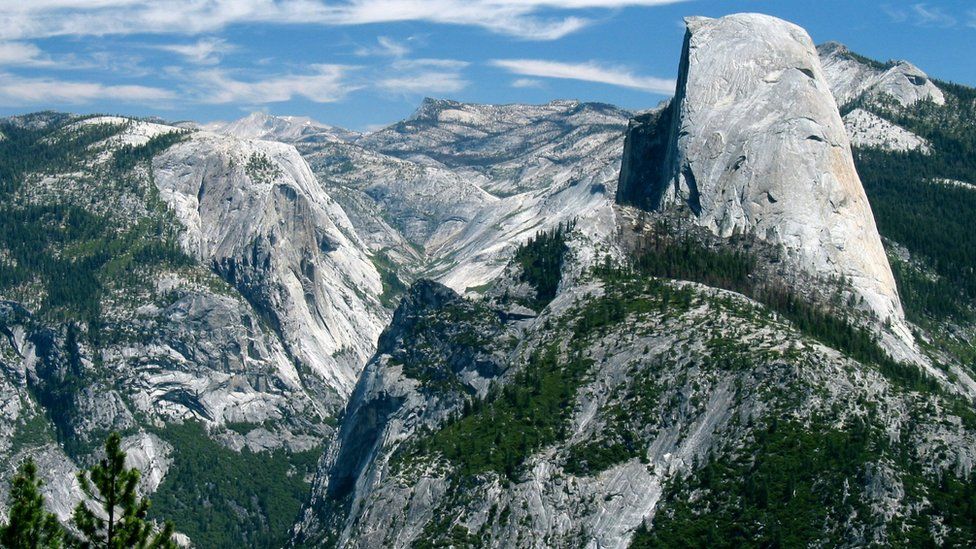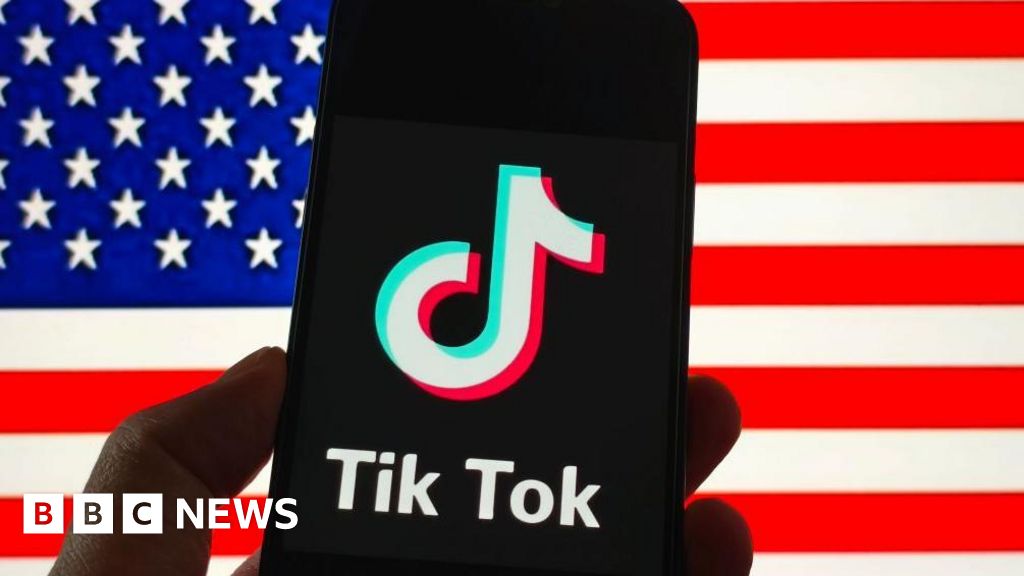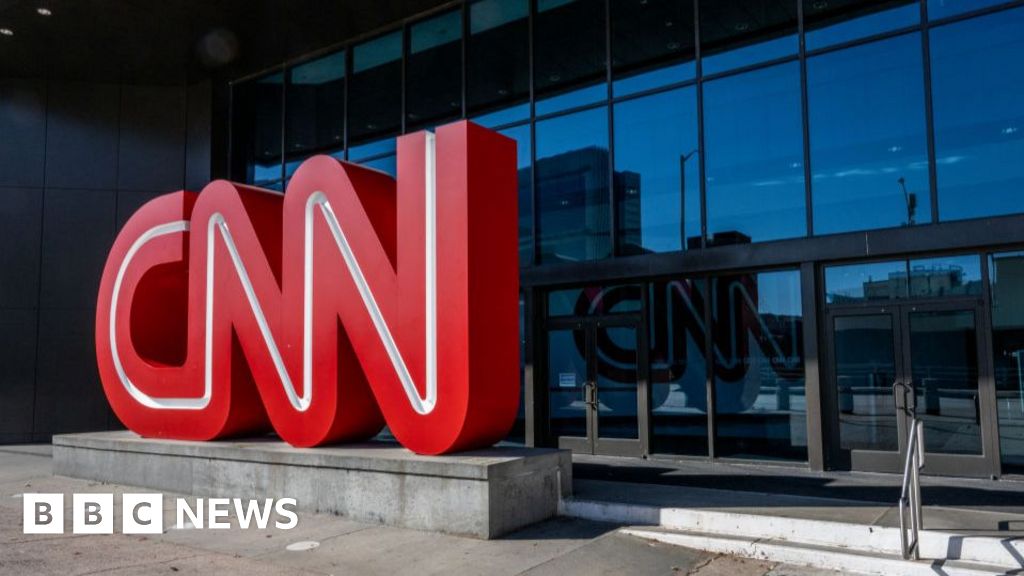ARTICLE AD BOX
 Image source, SYMG Collection
Image source, SYMG Collection
Scores of businesses operating around the iconic Yosemite national park are among those that could be heavily impacted by a government shutdown
By Matt Murphy
BBC News, Washington
As the US moves rapidly towards a government shutdown, businesses across the US are bracing for the impact of an extended spending squabble in Washington DC.
While some politicians have sought to argue that the knock-on effect of the shutdown will be limited to government workers, thousands of American companies rely on spin-off business generated by federal parks, museums and offices, which will be closed at midnight on Saturday if Congress fails to agree a budget.
National parks in particular will be heavily hit by the crisis, with some states preparing to close their gates, fence off car parks and furlough park rangers.
Business owners have told the BBC that the revenue lost by such a move could have a disastrous impact on their operations.
Speaking to the BBC on Friday, one businesswoman confessed that for her company, a lengthy shutdown "could be the end of us".
Watch: How does a government shutdown impact the US?
In California, state officials have already made clear that major national parks - including Yosemite, Reyes and Alcatraz prison - will all be forced to close in absence of federal funding.
Around 3.6 million people visit Yosemite every year, generating hundreds of millions of dollars in spin-off business for local companies.
Elisabeth Barton, owner of Echo Adventures Cooperative, which runs tours in Yosemite, said that the shutdown marks the latest major challenge faced by her company.
"Our region has been severely impacted by an incredibly intense winter," she said. "We had closures this year, we had power outages and now we're dealing with this potential shutdown. We are already at 50% our average annual revenue, so this is pretty terrifying."
"We invested pretty heavily for October, which has worked out pretty well for us. It looked like we might recovered some of out lost revenue," she added.
"We understand that mother nature can be a fickle business partner, what we didn't expect this year was mother nature, our electric grid and our government all bail out on us, so were running out of contingency plans."
Brooke Smith - a spokesperson for Visit Yosemite, a group that supports local companies - said a shutdown is the last thing Californian businesses need after a turbulent year.
"We had one of the snowiest winters on record," she said. "And spring was very, very wet and rainy. And that's after years and years of back-to-back megafires. So for businesses in this region it's been one hit after another."
While California's government has said it won't cover missing federal funding to keep parks open, it is unclear to what extent they will be forced to close.
Ms Smith said that while Visit Yosemite was "ready to roll with information" once the shutdown begins, the chaotic and unpredictable nature of the event made it impossible to plan in advance.
During the last federal shutdown in 2018-19, President Donald Trump's administration kept many parks open without staffing - but critics say the move led to chaos that threatened the sanctity of some parks.
This time around, the US interior department said that "at sites across the country, gates will be locked, visitor centres will be closed". A similar approach during the 2013 shutdown saw monuments on the National Mall literally fenced off.
Image source, Getty Images
Image caption,During the 2013 shutdown sites including the US World War 2 memorial were fenced off
Several states have already pledged to provide state funding to keep some key sites open. In Arizona, Governor Katie Hobbs has vowed to keep the iconic Grand Canyon operating at minimal staffing levels.
But in states such as California, where regional governments are refusing to cover the shortfall, confusion reigns. Federal officials have admitted that it is impossible to wall off vast national parks, noting that those "with areas that are physically accessible to the public" will have to remain open to some degree.
The conflicting messages - and the indefinite nature of the looming shutdown - has left business owners scrambling for any crumb of information.
"We don't really know what's going to happen," Ian Elman of Southern Yosemite Mountain Guides. "This has happened to us before, a government shutdown. Some of the parks they literally shutdown. If there was an easy park to shutdown, they did."
"We don't really know how its going to affect us and our clients."
Ms Barton agreed, noting that she and her employees "can't make any plans because nobody is telling us what to expect".
"There's only so much we can bear. If this was an extended total closure I don't know what choice we would have," she confessed.
Both Mr Elman and Ms Smith observed that the shutdown will have a much broader impact than many realise.
"If you have a business related to working within the parks service like us, its another layer of hurt," Mr Elman said. "My employees get hurt if I have to cancel their days, my third-party transportation gets hurt, my hotels get hurt, the tax revenue gets hurt."
All of the business owners the BBC spoke to expressed frustration with the federal government, and a lack of patience with the last-gasp negotiations ongoing in Washington.
"It affects everyone down along the line. Its really disappointing, and of all the disappointing things our government does and has the potential to not do, this is a bad one," Mr Elman said.
Others reflected on the increased frequency of government shutdowns - once a rarity.
"Its so hard for me to understand why they would trade that for a few sound bites or a little bump in the polls," Ms Barton said.
"I can't fathom how this has become so acceptable."

 1 year ago
33
1 year ago
33








 English (US) ·
English (US) ·